Impressions on the Neo-Futurists’ Take on The Great American Drama
If anything, the meteoric rise of the forty-fifth American president from a Simpsons meme to bona fide signer of draconian executive orders proves that we now live in a time when a portion of Americans questions what it means to be American. Just look to the streets and you’ll find a protest popping up. Regardless of the state of the American republic and imploding American government, life continues, and where drama is, theatre is sure to follow.
The defining characteristic not just from the American political scene, but from the rise of largely nationalistic purveyors of catering to the unbridled desire of the not just the masses, but of the mob, is the latest trend of going native so much so that even Pope Francis spoke out about this. Populism is a way of saying the customer is always right, and now we bring you the ideology and demagogue you’ve always wanted.
The rise in populism, or looking for a savior who will bring us back to our glorious past, is an alternative to the fear of failure, and the modus operandi that fuels this movement is nostalgia. What the “people” want is the golden past when their forefathers were gods who made the promise of pensions after decades of service, there was work aplenty in multiple industries, and American-made Cadillacs roamed the open roads. The economic decline of the country has made people seek out the past. Faced with this, we are living in a historic loop where we are forced to ask: What is success? What is the American dream?
Can we have theatre that bases its intention solely on what the people want?
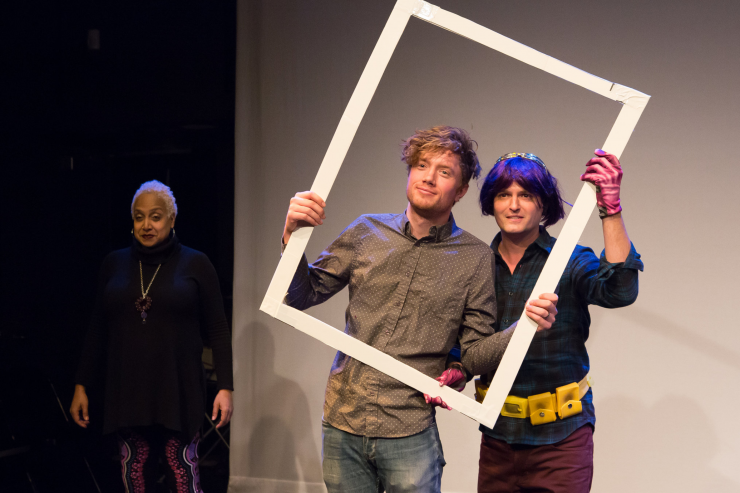
Here lies the impulse that theatremaker Connor Sampson had artistically—can we have theatre that bases its intention solely on what the people want? His experiment, The Great American Drama starring himself and other fellow New York Neo-Futurists Daniel McCoy, Katy-May Hudson, and Nicole Hill with a live musical performance by Lijie, recently ran a show where they try to give the audience exactly that. Conceived two years ago by Sampson to create theatre dictated by audience reaction, the experimental group Neo-Futurists obliged in making this concept into reality as it falls in line with their mission statement:
- Strengthening the human bond between performer and audience. We feel that the more sincere and genuine we can be on stage, the greater the audience’s identification with the unadorned people and issues before them.
- Embracing a form of non-illusory theatre in order to present our lives and ideas as directly as possible. All of our plays are set on the stage in front of the audience. All of our characters are ourselves. All of our stories really happened. All of our tasks are actual challenges. We do not aim to “suspend the audience’s disbelief,” but to create a world where the stage is a continuation of daily life.
- Embracing the moment through audience interaction and planned obsolescence. In order to keep ourselves as alive on stage as possible, we interweave elements of chance and change—contradicting the expected and eliminating the permanent.
I watched the The Great Amerian Drama’s final performance on February 5, 2017, in a small theatre at the newly-renovated ART/New York in Midtown Manhattan. A group of scrappy, mostly young (but definitely hungry) theatremakers performed the final product of an experiment—to fulfill what the audience desires from them. This was populism in action. The audience’s tongue-in-cheek remarks and suggestions sent through e-mail, or left as handwritten comments on index cards before and after each performance, were silly as they were random. In fact, they sounded more like improvisational prompts: puppets, clowns, a five-act play in iambic pentameter in under a minute, nudity, Hamilton.
Given the Neo-Futurists’ mission statement, it was not surprising that throughout the show, projections of what people wanted or what they commented on appeared on stage. Most notably, Nikki, one of the audience members, said: “Vile…pandering is not art.” The ensemble seemed to take this comment in stride, laughing about it as they shrugged their shoulders and said that they loved this particular comment.
The ensemble was not shy in being transparent with their metrics—how much money they’ve lost, ticket sales, unfilled seats, number of comped seats, etc. In the face of what seems like “failure” in the commercial sense, was this show a success? Before their final bows, the ensemble answered this question in what for me was probably the most moving and human part of the production.
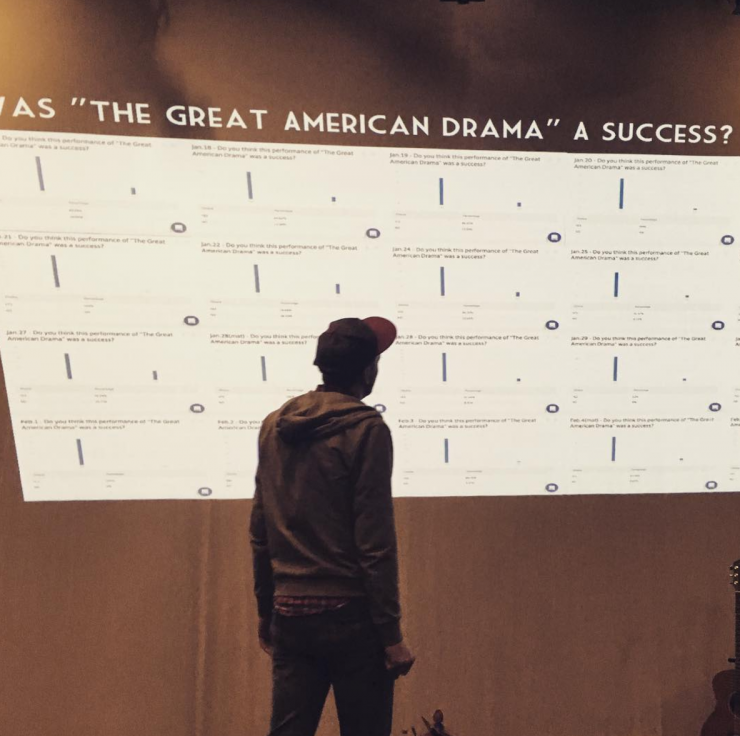
The Great American Drama, like the United States of America, is a process. Both are constantly becoming, struggling to be ever ‘more perfect.’—Greg Taubman
This epilogue—the goodbyes of the ensemble as they stated why this piece that demanded their time, sweat, and tears was worth it—was an offering of their truest unadorned selves as humans having a human experience. Lijie, the musician, choked back tears in silence before finally speaking and saying that she could have been a doctor or a lawyer just like her parents wanted, but instead her American dream was to be a musician. Katy-May Hudson talked about being a woman and an immigrant from Australia, and how immigrants are part of the American dream. Daniel McCoy talked about what success means for him while keeping his day job as an arts administrator, so that he could do what he loves most—making theatre. Connor Sampson talked about putting all of himself on stage from start to finish, and all this had meaning for him.
For me, however, Nicole Hill’s words struck the most. The oldest of the ensemble members, she talked about being a bisexual black woman whose presence on stage is because of the sacrifices that her ancestors made. “I’m a nanny…that’s my day job so I can do this job. My ancestors had no choice. I’m a nanny, but it’s a choice. That’s my privilege.”
As co-director and dramaturg, Greg Taubman writes in the program notes:
As this project keeps reminding me: neither the play itself nor the country it’s engaged with are completely coherent or fully realized. What makes America “great” is always in motion, always up for grabs. The Great American Drama, like the United States of America, is a process. Both are constantly becoming, struggling to be ever “more perfect.”
At the end of each show, the audience members are asked to fill out a survey via text to determine whether the performance was a success or not. I took my phone out, punched the numbers on the screen and typed: Yes.


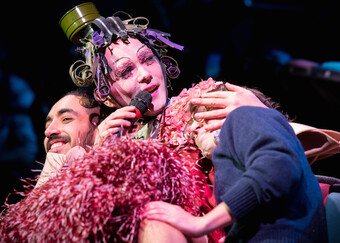

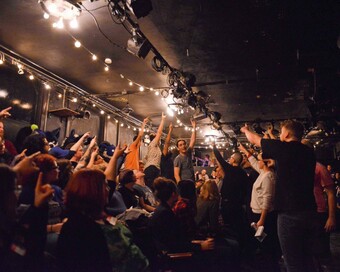

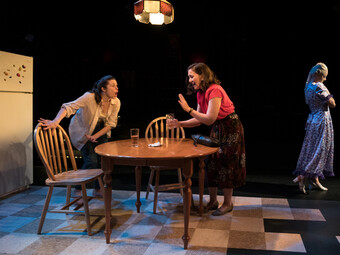

Comments
The article is just the start of the conversation—we want to know what you think about this subject, too! HowlRound is a space for knowledge-sharing, and we welcome spirited, thoughtful, and on-topic dialogue. Find our full comments policy here